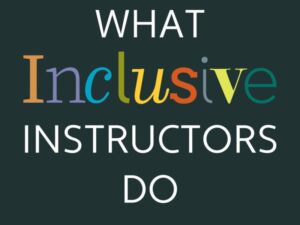 |
Does your students’ writing seem vague? As we approach the final weeks of the semester and brace ourselves for the onslaught of paper revisions, John Orlando offers a fresh perspective that might hold the key to addressing this issue. In his insightful article, Writing versus Thinking Skills: A False Dichotomy, he posits that writing problems extending beyond basic grammar and spelling errors are, in fact, manifestations of muddled thinking.









